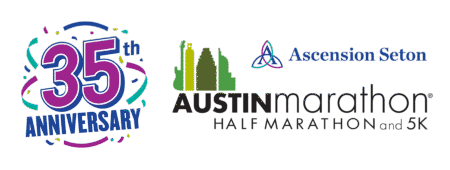Understand How Temperature Affects Running Performance
Dr. Allen breaks down how and why temperature affects running performance
Central Texas is known for its dramatic changes in weather. Runners should always check the weather before taking off for a run. You should always have a plan and dress accordingly. Properly hydrating also goes a long way. In order to optimize running, you should know how temperature affects running performance. That’s why we checked in with Dr. Allen and the experts at Ascension Seton Sports Performance. Dr. Allen explains how temperature affects running performance and what it means for you. Remember to always listen to your body!
How the body reacts to hot and cold
Temperatures in the Central Texas summer months can exceed 100°F. Winter months can experience temperatures that can range from the 20s to 50s. The body performs best if core temperature is maintained below 104°F with fatigue setting in above this temperature. Humans are unfortunately relatively inefficient when it comes to this. As much as 70% of the chemical energy can dissipate as heat instead of being turned into mechanical energy for movement. This is why it’s important to know your pace and have a plan for race day. Pro tip: use this helpful pace chart as your guide!
As the runner increases their pace the body slowly heats up. It sends more blood to the muscles involved in movement and proportionally less blood to the skin to get rid of heat. Cooler temperatures, wind, cloud cover, and appropriately ventilated clothing all help runners maintain a faster race pace. This is helpful to know if you’re increasing your mileage while training for a marathon.
Research shows that runners self-select a pace that will allow them to perform at their physiological limit given the conditions of the day. During a marathon, competitive runners usually maintain a pace that corresponds to 70-90% of their VO2 max. Contact the experts at Ascension Seton Sports Performance to find out your VO2 max and marathon race pace – sportssci@ascension.org.
Running in the heat
Additionally, it has been demonstrated that 50°F is the optimal temperature for peak marathon performance. As the temperature heats up from 41°F, runners get slower for every 9°F increase in wet bulb globe temperature (WBGT). WBGT is an index of heat that is thought to best represent heat stress. Elite runners tend to slow their self-selected race pace by 1.7, 2.5, 3.3, and 4.5% respectively. That means at a WBGT of 77°F elite runners are running 4.5% slower than at a WBGT of 41°F. Slower runners seem to slow down even more, decreasing speed by 3.2, 6.4, 9.6, and 12.8% respectively. At a WBGT of 77°F a slower runner is running over 12% slower than at WBGT of 41°F. This can explain why your runs take more effort as you run in the heat of summer.
The research indicates this may be because slower runners spend more time exposed to hotter conditions. They also tend to spend more time running in packs of other runners. This has been shown to decrease airflow related heat loss by 50%!
Regardless of your ability level, the key takeaways are that runners tend to settle on a pace that corresponds to what their body can do given the temperature of the day. Hotter temperatures present a greater challenge for runners than colder temperatures. It’s important to allow your body to naturally cool down by allowing for airflow when racing on a hot day. For more content related to all things sports performance, fun virtual challenges, and information regarding our Sports Performance offerings, join our free Strava Club “Ascension Texas Sports Performance.”
About Dr. Jakob Allen
Dr. Allen received his Doctoral training from the nationally ranked University of Texas at Austin. He was an 8x All-American collegiate swimmer at Stanford, American Record holder, NCAA and Pac-10 Champion, and 2x Olympic Trials qualifier. Dr. Allen is now an avid cyclist and triathlete, frequently placing in the top-5 overall amateurs in Central Texas triathlons. He is driven to bring about the greatest potential of all athletes whether you are a weekend warrior or an Olympian.
Dr. Allen currently serves as the Sports Scientist for the Austin Bold FC team in addition to his work in the clinic. He believes that exercise remains one of the best ways to improve every physiological system in the body throughout the lifespan. Whether it’s helping prevent changes in mental acuity or improving muscle function, the benefits of exercise continue to be supported by scientific studies. Dr. Allen specializes in designing exercise training programs for improving muscle and cardiovascular health for aging wellness and masters athlete performance.



